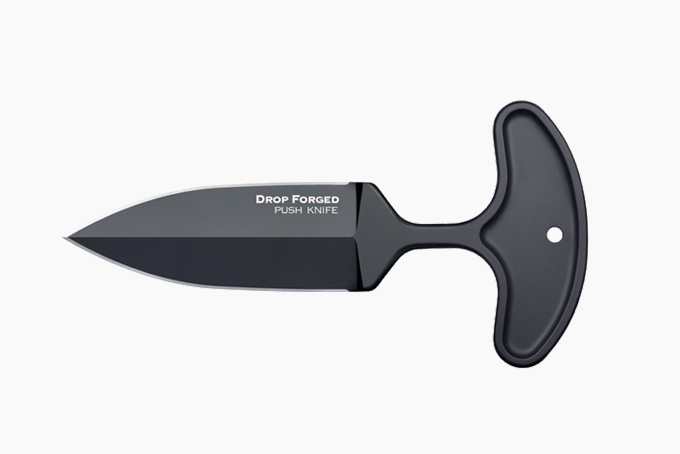
It is important to be neutral when you are subject to verbal attacks. Although it may seem counterproductive, neutral body language can deter attackers. Different responses will have different consequences. Here are some basic strategies for verbal self defense. You can read on to discover which ones work for you. To avoid further aggravating the situation, we'll provide examples of some possible responses. There is no right or wrong answer to verbal abuses.
Principles for Imminence
A fundamental principle of self-defense is timing. You may be construed to have used defensive force too early or too late. Only use defensive forces when they are absolutely necessary and when there is imminent danger. The imminence rule aims to ensure you use only defensive force when you are faced with a legitimate threat. But, if there is no imminent threat, you might feel frustrated or abandoned. This could result in losing the chance to use defensive forces.
Principle of proportionality
A defensive action must meet two basic requirements: proportionality and necessity. While necessity is the standard that a court looks for when determining the appropriateness of a defensive action, the latter test is more flexible and less demanding. It examines whether one's response to the threat is appropriate and necessary to defend themselves in such circumstances. Kyle met these two tests and was therefore able to use physical force against the threat.

Boring Baroque Response
Boring Baroque Responses to Verbal Attacks have many benefits. One benefit is the neutralization of hostile tones. A verbal attacker may say, "Oh, FORGET IT! NEVER MIND! SHEEESH!" This is a way to get out from the situation. This simple and effective response will send your attacker away. It will also show him or herself that you are not prepared to engage in verbal aggression with them.
Patsy
In an attack, often a weaker personality will take on the role of a pacifist. One example is that a weak person may agree with a boss who has a psychopathic personality, which might prompt them to speak up. This is a classic example a psychopathic environment. It's characterized by an old Latin quotation. This saying is also applicable to verbal defense, especially in work settings.
Principle of Imminence
The "Principle to Imminence" in the context of verbal defense is a legal requirement that must always be observed in most jurisdictions. A threat of force is considered imminent in most cases if the actor cannot avoid harm. Even if the actor has other ways to avoid harm, the use of force is justified if the threat is imminent and the victim is likely to survive the attack.

FAQ
Why Metabolic Health Is the Key to Aging Well?
Today's people live longer than ever before. However, people are getting sicker as they live longer. And while we've made great strides in medical science, it's becoming increasingly clear that our current approach isn't working.
It is time to change the way we view health and aging. We have to start looking at metabolic health - not just weight loss but overall wellness - as the key to healthy aging.
You must ensure your metabolism is strong and healthy throughout your life if you want to lead a long, active life.
There are many ways you can improve your metabolic health. One way is to include these 7 foods in your diet.
-
Resveratrol is a component of blueberries that has been proven to improve cellular longevity. They also provide antioxidants and vitamins C & E.
-
Beans like lentils and pinto beans are excellent fiber and plant-based protein sources. These nutrients help maintain blood sugar levels so they don’t spike and fall.
-
Broccoli's sulforaphane has been shown to protect DNA from damage in research. It may even slow down cancer growth.
-
Chia Seeds contain high levels of fiber and omega-3 fat acids. They're also loaded with antioxidants and protein. All these nutrients support heart health, brain function and gut health.
-
Green Tea contains polyphenols called caechins. Studies have shown that green tea contains catechins which are linked to lower bone fractures and cardiovascular disease. They also reduce cognitive decline and diabetes risk.
-
Salmonis a great source of lean protein. It is low in saturated fat and high in vitamin D.
-
Walnuts are rich sources of omega-3s and antioxidants, such as alpha lipoic (ALA). ALA protects against inflammation and boosts energy production.
How many times a week should I exercise?
It all depends on your time and the type of exercise that you enjoy. You should do moderate-intensity aerobic exercise three to five days per week. It is important not to overdo it. It is crucial to exercise regularly in order to reap the full benefits of your workouts.
Which exercises are best suited for me?
It really depends on what kind of fitness goals you have. Some people prefer endurance sports like swimming, cycling, or running. Some people enjoy lifting weights and using resistance bands. There are many exercise programs on the market today. Find the best option for you.
What is the best way lose weight?
It's not easy to lose weight. Many people give up because they don’t know what else to do.
But there are steps you can follow to shed extra pounds.
First, ensure that you consume fewer calories per day than you burn. If you consume more calories than what you burn, you will gain weight.
To burn all those calories, you should also start exercising. You can choose from different types of exercises, including jogging, walking, cycling, dancing, etc.
Third, stop smoking and drinking alcohol. These habits cause you to consume more calories than you would otherwise.
Fourth, it is important to reduce the consumption of junk food and fatty foods. You can replace them by healthier choices such as fruits, vegetables or lean meats.
Fifth, you should change your lifestyle to adopt new habits. It is possible to wake up at 5 AM to go to work, or to be more active before you get to work.
Sixth, discipline and following a diet plan are essential.
To burn extra calories, you can also join a gym or take an aerobics class.
You'll quickly start to notice results if you follow these simple tips.
Statistics
- By John Thompson Take a whopping 38% off a set of PowerBlock Pros. (menshealth.com)
- Get free shipping and 25% off today. (healthline.com)
- Cardmembers earn 5% Back at Amazon.com with a Prime Credit Card. (amazon.com)
- The PRS enabled risk stratification for overall prostate cancer and lethal disease with a four-fold difference between men in the highest and lowest quartiles (HR, 4.32; 95% confidence interval [CI], 3.16-5.89). (pubmed.ncbi.nlm.nih.gov)
- Are You One of the 20% of Guys (mh.co.za)
External Links
How To
How can I burn fat and exercise?
Exercise reduces calories by increasing metabolism, and oxygen consumption.
At moderate intensity, you will lose weight easily.
These tips can help you to burn fat while training:
-
Cardio exercises can include running, walking, swimming or cycling.
-
Three times per week, exercise for 30 minutes.
-
Strength training is a great way to lose weight.
-
Avoid intense training. You can build muscle without breaking down muscle tissue.
-
When exercising, make sure to drink lots of water. Water is essential for flushing out toxins and keeping your body hydrated.
-
After working out, drink low-fat protein shakes. Protein shakes can help boost energy and repair muscles.
-
You can eat smaller meals throughout the day so that you don't feel hungry in between meals.
-
Don't skip breakfast! You can feel tired and slow if you skip breakfast.
-
Take care of yourself mentally. Stressful situations can slow metabolism.
-
Keep a positive attitude. Research shows that overweight people gain more weight if they believe they are overweight than those who believe they look good.
-
Sleep enough. Lack of sleep makes it harder to burn fat.
-
Keep active. Get up every hour and get moving.
-
Maintain a healthy diet. Healthy eating will keep you fuller and more satisfied for longer.
-
Find relaxation techniques. Tenseness can cause stress hormones to break down muscle tissue.
A balanced diet includes all essential nutrients needed for growth and development.
Instead of eating three large meals a day, eat six smaller meals every day. This allows your body to properly digest what you have eaten.
To maintain strong bones, you need to consume 500 mg of calcium each day. Calcium can be found in dairy products such as yogurt, fortified soybean beverages, orange juice, cereals, bread, and cereals.
Calcium comes from leafy green vegetables, beans, tofu, nuts, seeds, and cheese.
Vitamin D is required by the body to absorb calcium. It's found in fatty fish, egg yolk, and some fortified foods.
Vitamin E is important for skin health. It can be found as a vegetable oil, wheat germ, peanuts or almonds.
Your body needs zinc to maintain normal immune function and heal wounds. Zinc is found in oysters, legumes, meats, whole grains, and seafood.
Zinc deficiency can cause fatigue and loss of appetite. It can also lead to depression and impaired immunity.
Sugar intake can lead to insulin resistance which causes blood glucose levels to rise. Insulin resistance leads directly to weight gain.
Insulin resistance is caused by high blood levels of free-radicals. Free radicals can be molecules with unpaired electrons that cause damage to cell membranes.
Free radicals come mainly from food additives, pesticides, herbicides, preservatives, smoking, air pollution, radiation, chemicals in cosmetics, lotions, and household cleaning supplies.
Free radical damage can lead to cancer, heart disease, diabetes, arthritis, asthma, and aging.
A well-balanced diet rich in antioxidants is the best way for you to avoid free radical damage. Antioxidants protect against oxidative damage.
Vitamin C is found in citrus fruits and beta carotene is found in carrots.
Other antioxidant nutrients include selenium, copper, manganese, and zinc.
Selenium protects cells against oxidative damage from free radicals. Selenium may be found in Brazil nuts as well tuna, liver and kidneys. It can also be found on shrimp, cod, turkey, beef lamb, pork, chicken, and other foods.
Copper protects the brain and eyes as well as the lungs and red blood cells. Copper can be found in meat, shellfish, meat, and organ meats.
Manganese forms an essential part of bone structure. Manganese can be found in brown rice and spinach as well as bananas, prunes raisins, oatmeal, lentils, and oatmeal.
Zinc is necessary for average growth, reproduction, and wound healing. Zn is found in lean meats, poultry, white fish and eggs.